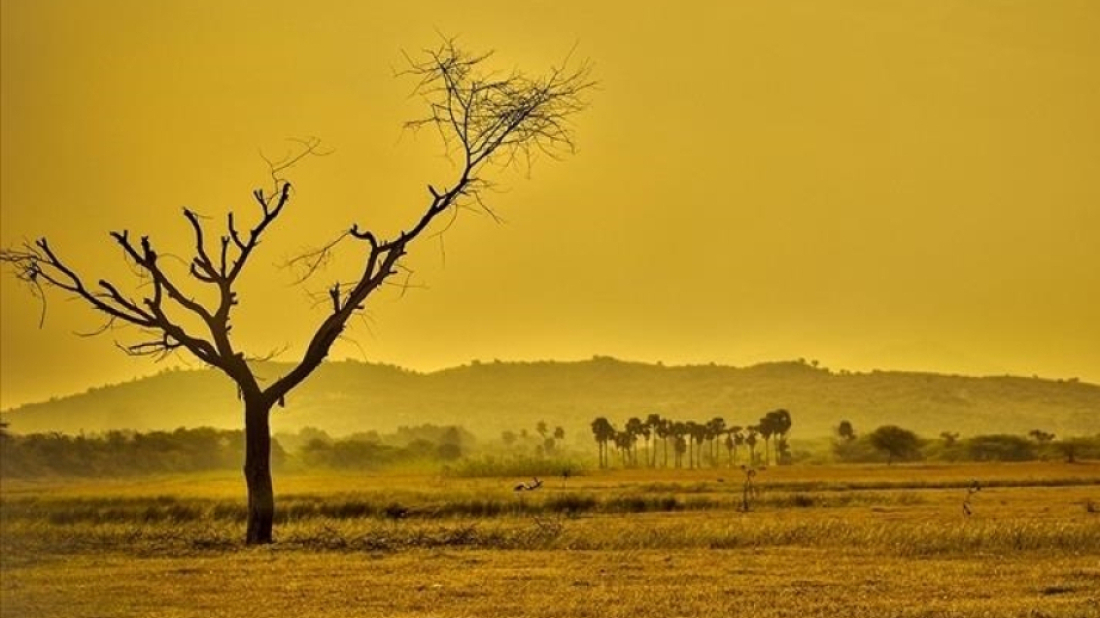live Israeli military says it has launched fresh strikes on Tehran and Beirut: All the latest news on the Iran strikes
The Israeli military has begun a new wave of strikes on Tehran, it said late on Monday. The strikes came after it issued...

Climate change is threatening the sustainability of low Earth orbit, with new research from MIT revealing that shrinking atmospheric layers could significantly reduce the number of satellites able to operate safely by the end of the century.
Climate change is altering the environment of near-Earth space in ways that could significantly reduce the number of satellites able to safely operate in low Earth orbit by the century's end, according to a new study by the Massachusetts Institute of Technology (MIT), as reported by Anadolu Agency.
Published in Nature Sustainability on Monday, the research reveals that greenhouse gas emissions are causing the upper atmosphere, particularly the thermosphere, to shrink. This is the region where the International Space Station and most satellites orbit.
As the thermosphere contracts, the thinning air reduces the natural drag that typically slows down old satellites and space debris, causing them to re-enter the atmosphere and burn up. With less drag, defunct satellites and space junk will remain in orbit for much longer, increasing collision risks and overcrowding in low Earth orbit.
Researchers project that by 2100, the capacity of key orbital regions could decrease by 50%-66% if emissions continue to rise. The study highlights the urgent need for emission reductions and careful management of satellite launches.
Follow the latest developments and global reaction after the U.S. and Israel launched “major combat operations” in Iran, prompting retaliation from Tehran.
Saudi Arabia’s state oil giant Saudi Aramco closed its Ras Tanura refinery on Monday following an Iranian drone strike, an industry source told Reuters as Tehran retaliated across the Gulf after a U.S.-Israeli attack on Iranian targets over the weekend.
The Kremlin is utilising the recent United States and Israeli military strikes on Iran to validate its ongoing war in Ukraine. Russian officials are pointing to the escalation in the Middle East as evidence that Western nations do not adhere to international rules.
The Middle East crisis intensifies after the deadly attack on the compound of the Supreme Leader of Iran Ali Khamenei on Saturday that killed him, other family members and senior figures. Iran has launched retaliatory strikes on U.S. targets in the region.
Ayatollah Alireza Arafi has moved into a pivotal constitutional role following the death of Supreme Leader Ayatollah Ali Khamenei, becoming the clerical member of Iran’s temporary leadership council under Article 111 of the Constitution of the Islamic Republic of Iran.
The death toll from heavy rains and flooding in Brazil’s Minas Gerais state has risen to 46, authorities said, with 21 people still reported missing. The storms triggered landslides and widespread flooding, displacing thousands across Juiz de Fora and Uba.
The administration of U.S. President Donald Trump on Thursday (12 February) announced the repeal of a scientific finding that greenhouse gas emissions endanger human health, and eliminated federal tailpipe emissions standards for cars and trucks.
Tropical Cyclone Gezani has killed at least 31 people and left four others missing after tearing through eastern Madagascar, the government said on Wednesday, with the island nation’s second-largest city bearing the brunt of the destruction.
Rivers and reservoirs across Spain and Portugal were on the verge of overflowing on Wednesday as a new weather front pounded the Iberian peninsula, compounding damage from last week's Storm Kristin.
Morocco has evacuated more than 100,000 people from four provinces after heavy rainfall triggered flash floods across several northern regions, the Interior Ministry said on Wednesday.
You can download the AnewZ application from Play Store and the App Store.

What is your opinion on this topic?
Leave the first comment